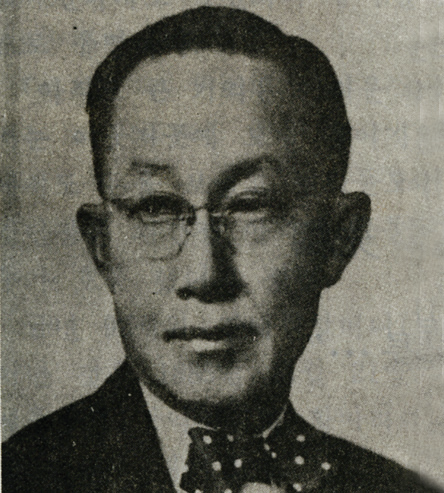Jeong Han-gyeong developed an interest in modern studies while attending a university established by Park Jang-hyun, who was the uncle of Park Yong-man. At the age of 14, in 1904, he traveled to Hawaii to learn new knowledge and later moved to San Francisco for further studies. Upon arriving in San Francisco, he worked for a year washing dishes and cooking at a Korean church. There is an anecdote that when Dosan Ahn Chang-ho first met Jeong, he encouraged him by saying, “You are not an ordinary person, so do not work under others; you should be capable of writing editorials for American newspapers,” while giving him 25 cents.
Jeong enrolled at the University of Nebraska, where he studied political science and met Park Yong-man, which led him to participate in the Korean community and engage in the independence movement. He played a pivotal role in establishing a school for young soldiers. In 1918, after Germany’s surrender, the Paris Peace Conference was held. A general meeting of Korean Americans was convened, and Jeong was selected as a representative to attend the conference alongside Lee Seung-man and Min Chan-ho. However, the U.S. State Department denied his participation, stating that “Korea is not a country and therefore does not have the qualifications to attend.”
While the Provisional Government in Shanghai sent Kim Kyu-sik to Paris, Jeong remained in Paris as the European representative of the Europe Committee. In Washington, he worked on U.S. diplomacy alongside Dr. Lee Seung-man, Hong Eon, and Pastor Hyun-soon as members of the Provisional Government and the Korean National Association. Jeong organized the “New Korea Association” with Kim Kyu-sik, who was dispatched to the Pacific coast and New York, and engaged in diplomatic activities.
On February 25, 1919, he submitted a petition to President Wilson and representatives of the peace conference. After studying economics at Northwestern University, he earned a Doctor of Philosophy degree from American University in Washington, D.C., in 1921, becoming the second person after Dr. Lee Seung-man to receive this degree. He served as the Secretary-General of the Europe Committee, a national representative at the Paris Conference of Small Nations, and the Secretary of the Provisional Government at the Washington Disarmament Conference, as well as the first ambassador to Japan.
Jeong was a scholar who authored four books in English, including Korean Treaties (a compilation of treaties Korea made with other countries), The Oriental Policy of the U.S.A. (a book about the impact of Japan’s rule over Korea on the U.S.), The Case of Korea (which dealt with the realities of Korea), and The Russians Came to Korea. He utilized his extensive knowledge and intellect to advocate for Korea’s independence in American society. He emphasized the inevitability of Korean independence through writings such as The Oriental Policy of the United States and The Peace Conference.
He published Korean Affairs in English, highlighting Japan’s aggressive ambitions. On October 11, 1919, he organized the Korean Friends Association in San Francisco, gaining the support of over a thousand Americans to support Koreans. He was responsible for U.S. diplomacy as a member of the Gu-mi Committee of the Provisional Government. Jeong was unique in that he met with prominent figures such as Dosan Ahn Chang-ho, Woo Nam Lee Seung-man, and Park Yong-man, promoting their ideologies and aspirations. However, throughout his life, Jeong Han-gyeong did not join any organizations such as the Korean National Association, the Heungsadan, or the Dongji Association, choosing instead to work independently. He believed that Korea, being a small nation, could only achieve independence by influencing the powerful United States. In recognition of his contributions, he was posthumously awarded the Order of National Foundation in 1962.

Leave a Reply